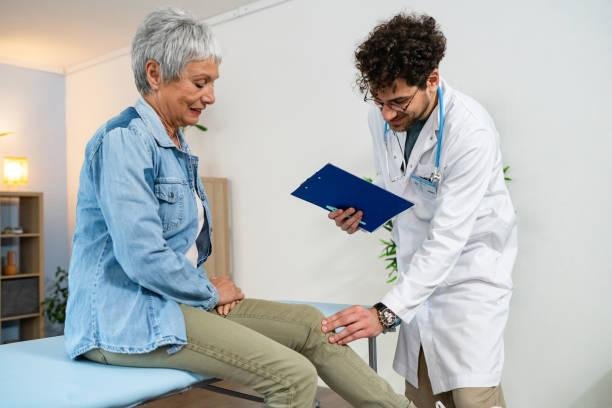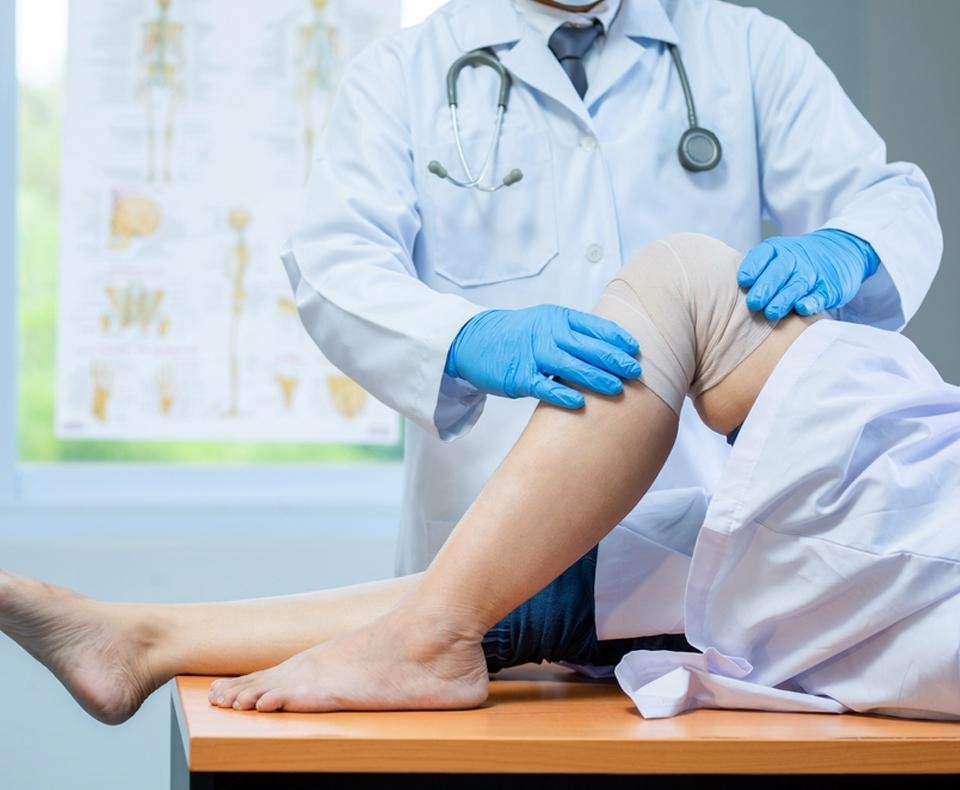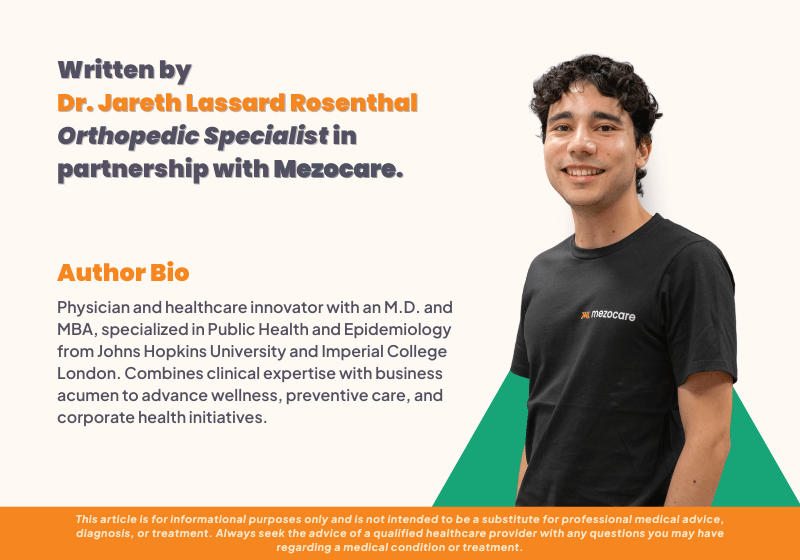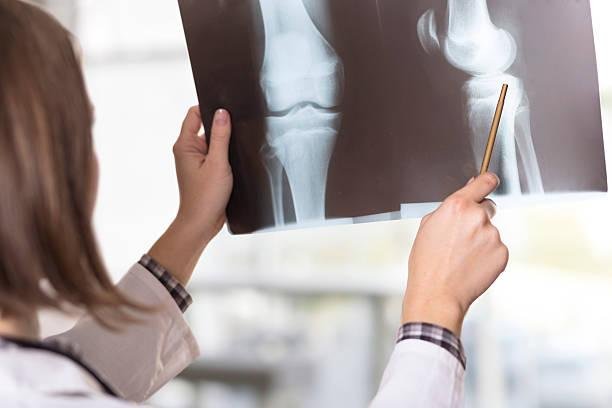What to Look for in an Orthopedic Surgeon — Even If You’re Not Ready Yet

Introduction: Why Choosing the Right Surgeon Matters
When it comes to joint pain, treatment decisions can be overwhelming. Conservative care like physical therapy or injections may delay surgery, but for many patients, orthopedic surgery eventually becomes necessary. At that point, one of the most important choices you’ll ever make is who performs your surgery.
The difference between a highly qualified surgeon and one without specialized expertise can be measured in recovery times, complication rates, and even the need for future revision surgery. According to the American Academy of Orthopaedic Surgeons (AAOS), patients treated by high-volume orthopedic surgeons — those who perform hundreds of procedures each year — experience significantly fewer complications and faster recoveries.
Even if you’re not ready for surgery today, knowing what to look for in an orthopedic surgeon ensures you’re prepared when the time comes. And for patients exploring surgery abroad, understanding these qualities is critical for building trust and peace of mind.
Why Your Surgeon Choice Is So Important
Orthopedic surgery is not a one-size-fits-all procedure. The skill, training, and approach of the surgeon directly affect:
- Surgical outcomes — including pain relief and improved mobility
- Complication rates — such as infections or implant issues
- Recovery timelines — how quickly you can return to daily life
- Long-term durability of the implant or repair
A Mayo Clinic study found that patients treated by surgeons with extensive training and experience had better functional outcomes and lower risks of revision surgery within 10 years. The surgeon you choose is not just performing an operation — they are guiding your recovery and future quality of life.
The 7 Key Qualities to Look For in an Orthopedic Surgeon
Here are seven qualities that signal you’re working with a trusted, highly qualified orthopedic surgeon.
1. Board Certification and Credentials
Look for surgeons who are board-certified in orthopedic surgery. Certification confirms that the surgeon has:
- Completed rigorous residency and fellowship training
- Passed comprehensive examinations
- Demonstrated ongoing commitment to professional development
Checklist:
- Certified by a recognized board (e.g., Mexican Council of Orthopedics and Traumatology, American Board of Orthopaedic Surgery)
- Active membership in professional associations like AAOS
2. Specialized Training
Orthopedic surgery covers a wide range of procedures. The best orthopedic surgeon in Mexico for knee replacements may not be the same as the best for shoulder arthroscopy.
Ask about:
- Fellowships in joint replacement, sports medicine, or trauma
- Specialized training abroad (U.S., Europe, or Asia)
- Focused experience in your specific procedure
3. Hospital and Facility Accreditation
Even the best surgeon needs the right environment. Accredited hospitals:
- Meet international safety standards
- Use advanced technology and equipment
- Have strict infection control protocols
Red flag: Avoid facilities that cannot provide documentation of accreditation.
4. Surgical Experience and Case Volume
The number of surgeries performed annually is a key predictor of success.
Questions to ask:
- How many procedures like mine have you performed?
- What is your complication rate?
- How often do your patients require revision surgery?
5. Patient Outcomes and Testimonials
Look for evidence of:
- High patient satisfaction scores
- Published outcomes data
- Real patient testimonials
Hearing about other patients’ experiences can help you feel more confident in your choice.
6. Clear Communication and Empathy
Technical skill is essential, but so is the ability to:
- Explain complex procedures in simple terms
- Listen to patient concerns
- Set realistic expectations
A surgeon who communicates openly builds trust and helps reduce anxiety before and after surgery.
7. Post-Surgery Support and Continuity of Care
Your recovery doesn’t end in the operating room. Ask about:
- Follow-up consultation schedules
- Access to physical therapy and rehabilitation
- Virtual follow-up options for international patients
A good surgeon provides a clear roadmap for the weeks and months following surgery.

Red Flags to Watch Out For
While searching for the right orthopedic surgeon, watch for these warning signs:
- Vague credentials: A lack of transparency about training or certifications.
- Unclear pricing: Hidden fees or unwillingness to provide a breakdown of costs.
- Limited aftercare: No plan for post-op support, especially for international patients.
- Poor communication: Difficulty answering questions or dismissing patient concerns.
Checklist: Red Flags at a Glance
- No clear board certification
- Refuses to share surgical volume or outcomes data
- No established aftercare plan
- Pushes for surgery without exploring alternatives
Why Patients Look Abroad for Orthopedic Surgeons
Many Americans and Canadians explore orthopedic surgery abroad because of:
- Cost savings: 40–70% less than U.S. prices
- Shorter wait times: Surgeries scheduled in weeks instead of months
- Global training: Many Mexican surgeons trained internationally
- Modern facilities: Accredited hospitals with advanced technology
For patients, finding the best orthopedic surgeon in Mexico isn’t about lowering expectations — it’s about accessing high-quality care at a more sustainable cost.
How Mezocare Vets Orthopedic Surgeons in Mexico
At Mezocare, we understand how overwhelming it can be to evaluate surgeons abroad. That’s why we’ve created a rigorous vetting process:
1. Credential Review
- Verify board certifications and subspecialty training.
- Confirm membership in professional associations
2. Facility Inspection
- On-site reviews of partner hospitals.
- Checks for accreditation and safety standards.
3. Patient Outcomes
- Collect and monitor outcomes data.
- Incorporate patient satisfaction feedback
4. Ongoing Monitoring
- Regular check-ins with partner surgeons.
- Continuous quality assurance
By doing this legwork, we give patients confidence that every Mezocare surgeon meets international standards.

FAQ: Choosing the Best Orthopedic Surgeon in Mexico
1. How do I verify a surgeon’s credentials abroad?
Ask for board certification details and hospital affiliations. Mezocare pre-verifies all this information for you.
2. Are Mexican orthopedic surgeons trained internationally?
Yes. Many complete fellowships or advanced training in the U.S., Europe, or Asia.
3. Do surgeons in Mexico use the same implants as in the U.S.?
Yes. FDA-approved implants from top manufacturers are standard.
4. What questions should I ask in a consultation?
Ask about surgical volume, complication rates, and aftercare plans.
5. Is it safe to have surgery abroad?
Yes, provided you choose accredited facilities and vetted surgeons. Mezocare ensures both.
6. What if I’m not ready for surgery yet?
Use this time to research. Being informed now helps you make confident decisions later.
Summary & Takeaway
Choosing an orthopedic surgeon is one of the most important medical decisions you’ll ever make. Even if you’re not ready for surgery today, knowing what to look for — and what to avoid — prepares you for when the time comes.
Mezocare takes the uncertainty out of the process by carefully vetting every surgeon and facility in our network, so you can focus on your recovery, not the risks.
Take the First Step Today
With Mezocare, you can access world-class orthopedic care at a fraction of the U.S. cost, without sacrificing quality or safety. Our team manages every detail so you can focus on your health and recovery.
Book your free virtual consultation today and discover your best next step toward lasting relief.



